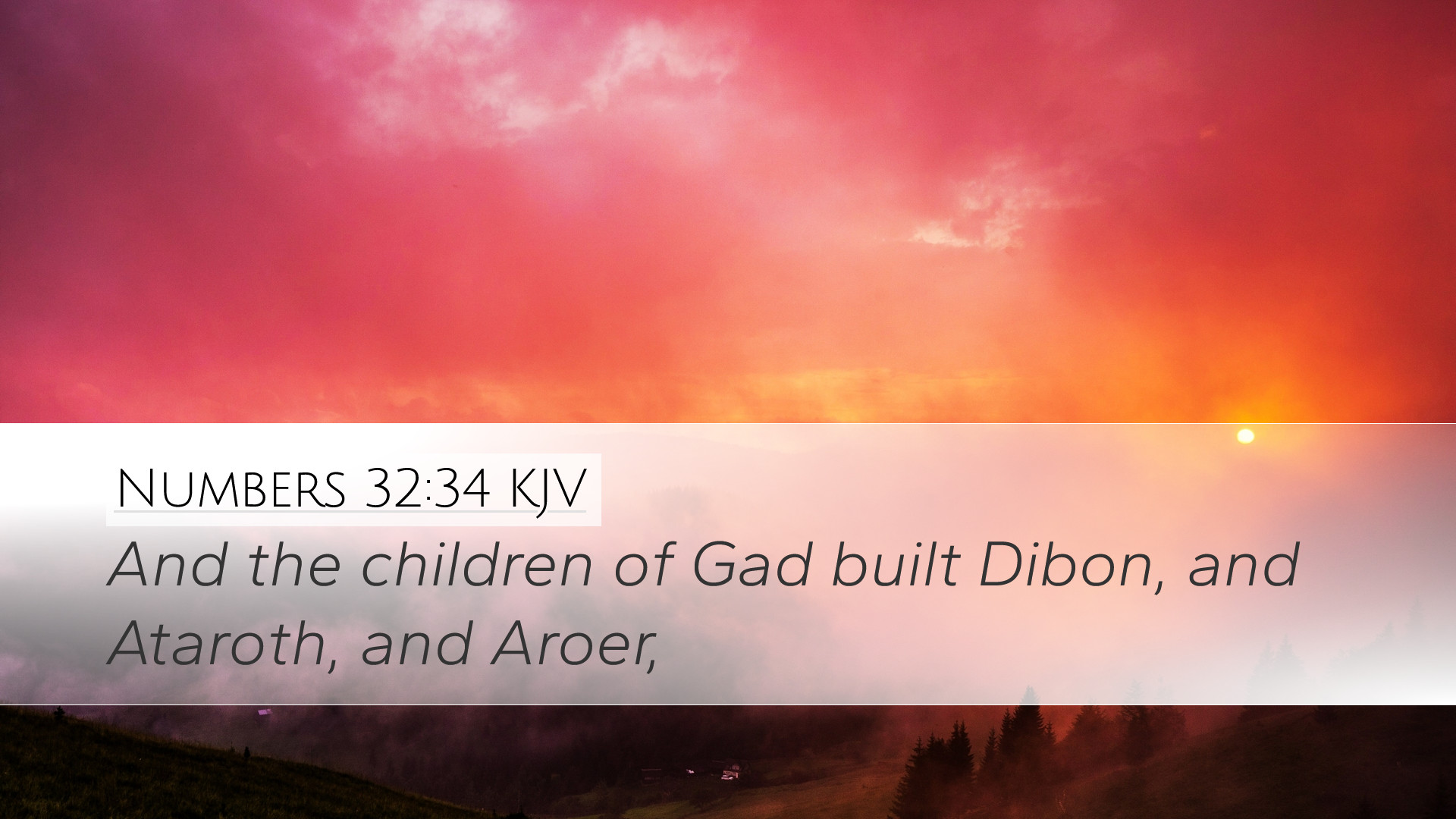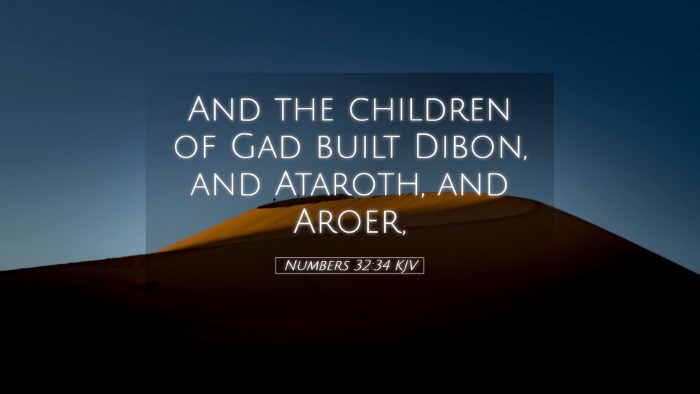Commentary on Numbers 32:34
Text of the Verse: "And the children of Gad built Dibon, and Atharoth, and Aroer." (Numbers 32:34)
Introduction
The verse serves as a pivotal moment in the narrative of the Israelites as they dwell in the plains of Moab, preparing to enter the Promised Land. Numbers 32 highlights the requests of the tribes of Reuben and Gad, demonstrating their desire to settle in the land that they had conquered. This commentary draws upon insights from various public domain sources such as Matthew Henry, Albert Barnes, and Adam Clarke.
Contextual Analysis
Before we delve into the specifics of the construction mentioned in this verse, it is essential to contextualize it within the broader narrative of Israel's journey. The previous chapters emphasize God's guidance in their journey, His covenant with Israel, and the impending claim to the land of Canaan.
Exegesis of the Verse
1. The Tribes of Gad and Reuben:
According to Matthew Henry, the tribes of Gad and Reuben were particularly influential because of their abundance of livestock. Thus, they expressed a desire to remain on the eastern side of the Jordan River, where the land was fertile for their needs. This suggests a prioritization of their immediate satisfaction over the collective mission of entering Canaan.
2. The Cities Built:
Albert Barnes highlights that the cities—Dibon, Atharoth, and Aroer—were fortified towns. Their construction indicates not only a reflection of the tribes' desire to settle down but also encapsulates their strategic intent to establish a secure presence in the land they perceived as sufficient for their needs. The very act of building cities reflects a desire for permanence and stability.
3. Implications of Settling:
Adam Clarke points to the significant ramifications of the tribes’ decision. He argues that it demonstrated a lack of faith in God's promise to give them the land of Canaan. By choosing to settle in a land that was already conquered, these tribes may have inadvertently influenced the community towards complacency, jeopardizing their larger mission.
Theological Themes
This brief verse encapsulates numerous theological themes that are ripe for exploration:
- The Nature of God’s Promises: How do the decisions of Reuben and Gad reflect our understanding of God's promises? It is a reminder that divine assurances are contingent upon faith and trust in God's larger plan.
- Material vs. Spiritual Needs: The prioritization of immediate, material concerns over spiritual journeying can often lead to spiritual stagnation. The tribes were content with physical comfort when God had greater plans for them.
- The Importance of Community and Unity: The desire to settle could also be viewed as a divisive act. Unity among the tribes was essential for their success as a nation; thus, their decision may have further implications for the unity of Israel.
Lessons for Modern Readers
1. Faith and Commitment: This scripture serves as a crucial reminder for modern believers regarding the importance of unwavering faith in God's promises and the need for commitment to His calling. Just as Gad and Reuben were tempted by the allure of immediate gain, so can we be distracted from our divine mission.
2. The Danger of Complacency: When we choose safety over faith, we risk becoming stagnant. The modern church must carefully navigate between meeting immediate needs and pursuing God’s long-term vision for His people.
3. The Community’s Responsibility: This verse also underscores the accountability we share within the community of believers. Decisions made within the church attire the entire body of Christ, and we must be vigilant in prayer and counsel to ensure we pursue collective goals aligned with God’s will.
Conclusion
Numbers 32:34 is a rich, layered verse that not only records historical events but also opens avenues for theological reflection and personal application. It teaches about the complexities of faith, the nature of God's promises, and the importance of community within the life of believers. For pastors, theologians, and students alike, this verse remains a poignant reminder of the continual call to trust God and pursue His intended path for our lives.


